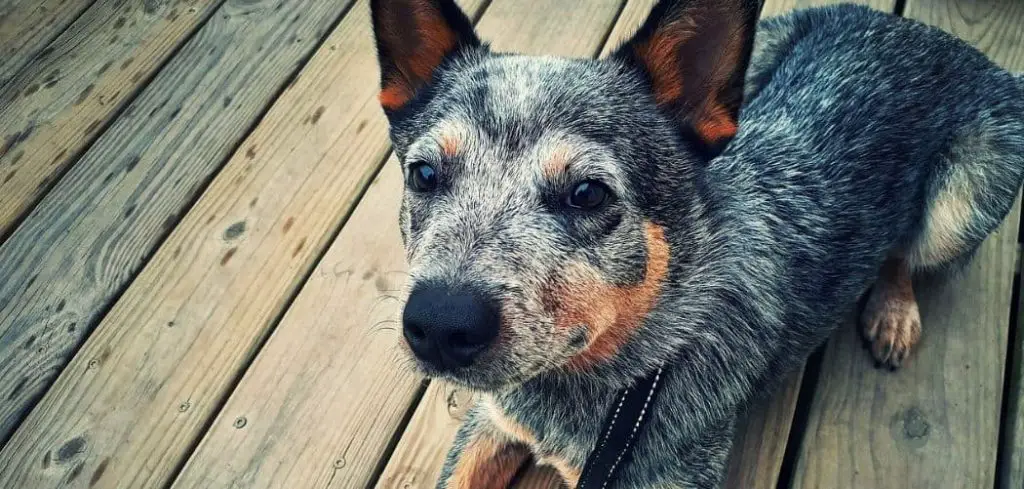When your dog is panting heavily and unable to settle down for rest, it can be distressing to watch. These symptoms can indicate discomfort, pain, or even a medical emergency that requires swift attention.
We outline the common reasons why your dog is panting and can’t sleep, what you can do at home, and when to seek veterinary help.
Dog Panting and Can't Sleep — Why It Happens
When a dog is panting and can’t sleep, this often signals that your dog is uncomfortable, anxious, or unwell. Common reasons include pain from injury or illness, heat stress, anxiety, respiratory or heart issues, and digestive discomfort.
Some dogs pant excessively when they’re in pain, while others may do so if they are struggling to breathe or if their body temperature is too high.
Internal discomfort, such as from bloat or pancreatitis, can also prevent sleep and cause restlessness.

Dog Panting and Can’t Sleep: Common Causes
Pain or Injury
When dogs are in pain, whether from arthritis, injury, or internal illness, they often pant and have difficulty finding a comfortable position.
The discomfort prevents them from settling into sleep, leading to pacing or shifting positions throughout the night.
You may notice other signs like whining, reluctance to move, or licking a specific area.
Pain-related panting should never be ignored, as it may indicate a worsening condition that needs medical attention.
Read more: Dog Panting and Can’t Stand Up (What it could mean)
Anxiety or Stress
Dogs experiencing anxiety often pant excessively and are unable to rest. Triggers can include loud noises, unfamiliar environments, separation from owners, or changes in household routine.
Stress hormones keep the dog alert and restless, preventing deep, restorative sleep. Over time, sleep deprivation can worsen anxiety and impact overall health.
Heat Stress or Overheating
If your dog is too warm, either from environmental temperatures or overexertion, panting is the body’s way of trying to cool down.
However, if heat levels remain high, your dog will be restless and unable to sleep.
Heat stress can escalate quickly into heatstroke, which is a medical emergency.
This is especially dangerous for brachycephalic (short-nosed) breeds, seniors, and dogs with heart conditions.
Respiratory or Heart Problems
Dogs with breathing difficulties or poor heart function may pant heavily due to reduced oxygen flow.
These issues can make lying down uncomfortable, particularly if fluid builds up in the chest.
They may pace, stand, or sit upright to ease breathing instead of lying flat. This constant discomfort disrupts sleep and signals the need for urgent veterinary evaluation.
Digestive Discomfort or Bloat
Gastrointestinal pain, such as from gas, constipation, or bloating, can cause both panting and restlessness. In severe cases, gastric dilatation-volvulus (GDV or bloat) can develop rapidly and is life-threatening.
Affected dogs may pace, drool, attempt to vomit unsuccessfully, or show signs of abdominal swelling. Immediate veterinary care is critical if you suspect bloat.
Hormonal Disorders
Conditions like Cushing’s disease can cause excessive panting, increased thirst, and frequent urination.
These hormonal imbalances often disrupt normal sleep cycles, leaving your dog awake and restless.
Diagnosis requires blood work and other tests, but early detection helps improve management and comfort.
What to Do If Your Dog Is Panting and Can’t Sleep
If your dog is panting heavily and unable to sleep, start by checking the environment. Ensure the room is cool, calm, and free from stress triggers. Offer fresh water and a quiet space where your dog feels safe.
If pain seems likely, avoid giving human pain medications and instead consult your vet for safe options.
Gentle reassurance, light petting, or a familiar blanket can sometimes help calm anxiety-driven restlessness.
For heat-related discomfort, move your dog to a cooler location and provide airflow with a fan. Avoid overexertion in warm weather, and monitor closely for any worsening signs.
If the cause is unclear, or if symptoms persist, it’s safest to seek veterinary advice promptly. Restlessness combined with panting can escalate quickly into a medical emergency.
When to Call or Visit Your Vet
You should contact your veterinarian immediately if your dog:
Shows signs of distress that last more than an hour.
Has labored breathing, blue gums, or collapses.
Has abdominal swelling, repeated retching, or appears in severe pain.
Becomes suddenly restless with no clear cause.
Is elderly, has an existing heart or lung condition, or is a brachycephalic breed.
In these cases, early intervention can mean the difference between recovery and serious complications.
Read more: Dog Panting and Can’t Poop (What you should know)
Key Takeaway
Panting and inability to sleep in dogs is a sign that something is wrong, whether it’s pain, anxiety, heat, or a more serious medical condition. While some cases may be mild and manageable at home, others require immediate veterinary care.
Pay close attention to accompanying symptoms, keep your dog comfortable, and never ignore persistent distress. Acting quickly ensures your dog gets the help they need for a safer, healthier recovery.
